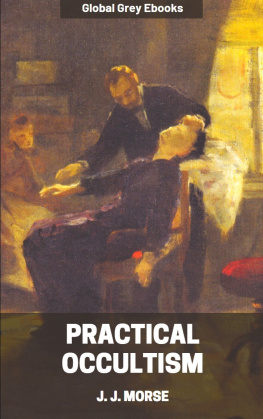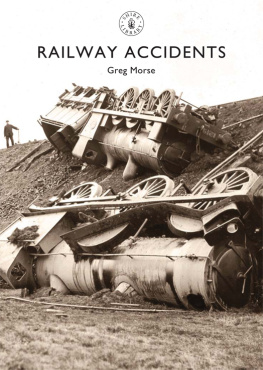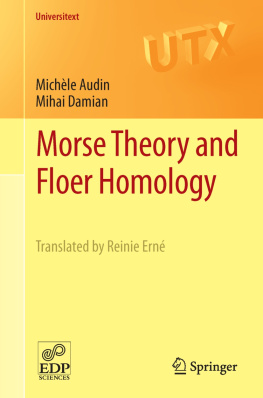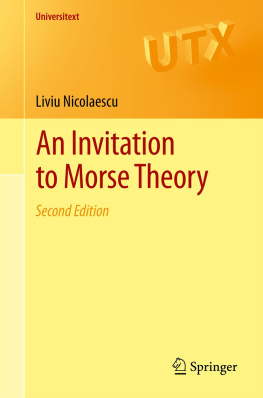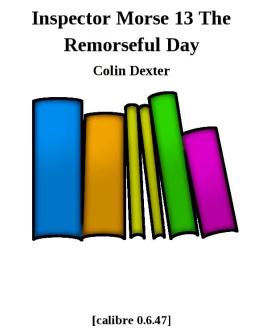H. Morse (Henry Morse) Stephens - Revolutionary Europe, 1789-1815
Here you can read online H. Morse (Henry Morse) Stephens - Revolutionary Europe, 1789-1815 full text of the book (entire story) in english for free. Download pdf and epub, get meaning, cover and reviews about this ebook. year: 2020, publisher: Library of Alexandria, genre: Politics. Description of the work, (preface) as well as reviews are available. Best literature library LitArk.com created for fans of good reading and offers a wide selection of genres:
Romance novel
Science fiction
Adventure
Detective
Science
History
Home and family
Prose
Art
Politics
Computer
Non-fiction
Religion
Business
Children
Humor
Choose a favorite category and find really read worthwhile books. Enjoy immersion in the world of imagination, feel the emotions of the characters or learn something new for yourself, make an fascinating discovery.
- Book:Revolutionary Europe, 1789-1815
- Author:
- Publisher:Library of Alexandria
- Genre:
- Year:2020
- Rating:4 / 5
- Favourites:Add to favourites
- Your mark:
- 80
- 1
- 2
- 3
- 4
- 5
Revolutionary Europe, 1789-1815: summary, description and annotation
We offer to read an annotation, description, summary or preface (depends on what the author of the book "Revolutionary Europe, 1789-1815" wrote himself). If you haven't found the necessary information about the book — write in the comments, we will try to find it.
Revolutionary Europe, 1789-1815 — read online for free the complete book (whole text) full work
Below is the text of the book, divided by pages. System saving the place of the last page read, allows you to conveniently read the book "Revolutionary Europe, 1789-1815" online for free, without having to search again every time where you left off. Put a bookmark, and you can go to the page where you finished reading at any time.
Font size:
Interval:
Bookmark:
REVOLUTIONARY EUROPE
17891815
EUROPE
PROFESSOR OF HISTORY AT CORNELL UNIVERSITY, ITHACA, U.S.A.
AUTHOR OF A HISTORY OF THE FRENCH REVOLUTION, ETC.
RIVINGTON, PERCIVAL, & CO.
1896
PAGE | |
| The Period from 1789 to 1815 an Era of TransitionThe Principles propounded during the period which have modified the political conceptions of the Eighteenth Century: i. The Principle of the Sovereignty of the People; ii. The Principle of Nationality; iii. The Principle of Personal LibertyThe Eighteenth Century, the Era of the Benevolent DespotsThe condition of the Labouring Classes in the Eighteenth Century: SerfdomThe Middle ClassesThe Upper ClassesWhy France led the way to modern ideas in the French RevolutionThe influence of the thinkers and writers of the Eighteenth Century in bringing about the changeContrast between the French and German thinkersThe low state of morality and general indifference to religionConclusion, | |
1789 | |
| The Treaty of 1756 between France and AustriaThe Triple Alliance between England, Prussia, and Holland, 1788The Minor Powers of EuropeAustria: Joseph II. His Internal PolicyHis Foreign PolicyRussia: CatherinePolandFrance: Louis XVI. Spain: Charles IV. Portugal: Maria \LI ItalyThe Two Sicilies: Ferdinand IV. NaplesSicilyRome: Pope Pius VI. Tuscany: Grand Duke LeopoldParma: Duke FerdinandModena: Duke Hercules III. LombardySardinia: Victor Amadeus III. LuccaGenoaVeniceEngland: George III. The Policy of PittPrussia: Frederick William II. Policy of PrussiaHollandDenmark: Christian VII. Sweden: Gustavus III. The Holy Roman EmpireThe DietThe ElectorsCollege of PrincesCollege of Free CitiesThe Imperial TribunalThe Aulic CouncilThe CirclesThe Princes of GermanyBavariaBadenWrtemburgSaxonySaxe-WeimarThe Ecclesiastical PrincesMayenceTrvesCologneThe Petty Princes and Knights of the EmpireSwitzerlandGenevaConclusion, | |
17891790 | |
| The Empress Catherine and the Emperor Joseph ii. The Turkish WarCampaign of 1789 against the TurksBattles of Foksany and the RymnikCapture of BelgradeRevolution in SwedenAffairs in BelgiumPolicy of Joseph ii. in BelgiumRevolution in LigeElections to the States-General in FranceMeeting of the States-General: struggle between the OrdersThe Tiers tat declares itself the National AssemblyOath of the Tennis CourtThe Sance RoyaleMirabeaus Address to the KingDismissal of NeckerRiot of 12th July in ParisCapture of the BastilleRecall of NeckerLouis XVI. visits ParisMurder of FoullonSession of 4th AugustDeclaration of the Rights of ManQuestion of the VetoMarch of the women of Paris to VersaillesLouis XVI. goes to reside in ParisEffect of the Revolution in France on EuropeThe Revolution in BelgiumFormation of the Belgian RepublicDeath of the Emperor Joseph II. Failure of his reignThe attitude of Louis XVI. to the French RevolutionThe new French ConstitutionCivil Constitution of the ClergyMeasures of the Constituent AssemblyMirabeauDanger threatened to the new state of affairs in France by a foreign warMirabeau and the French CourtProbable causes of a foreign warAvignon and the VenaissinAffair of Nootka SoundThe Pacte de FamilleRights of Princes of the Empire in AlsaceThe Emperor Leopold master of the situation, | |
17901792 | |
| The Emperor LeopoldHis Internal PolicyThe Policy of PrussiaLeopolds Foreign PolicyConference of ReichenbachLeopold and the TurksTreaty of SistovaLeopold crowned EmperorLeopold and HungaryState of Parties in BelgiumTheir Internal DissensionsCongress at the HagueLeopold reconquers BelgiumWar between Russia and SwedenTreaty of VerelaWar between Russia and the TurksCapture of IsmailTreaty of JassyPosition of LeopoldThe State of FranceMirabeaus adviceDeath of MirabeauThe Flight to VarennesIts Results: in FranceThe Massacre of 17th July 1791Revision of the ConstitutionIts Results: in EuropeManifesto of PaduaDeclaration of PilnitzCompletion of the French Constitution of 1791The Polish Constitution of 1791The Legislative Assembly in FranceThe GirondinsApproach of War between France and AustriaCauses of the WarAttitude of EuropeDeath of the Emperor LeopoldMurder of Gustavus III. of SwedenPolicy of DumouriezWar declared by France against AustriaInvasion of the Tuileries, 20th June 1792Francis II. crowned EmperorInvasion of France by Prussia and AustriaInsurrection of 10th August 1792Suspension of Louis XVI. Desertion of LafayetteThe Massacres of September in the prisonsBattle of ValmyMeeting of the National ConventionThe Girondins and the MountainConquest of Savoy, Nice, and MayenceBattle of JemmappesConquest of BelgiumExecution of Louis XVI. War declared against Spain, Holland, England and the EmpireCatherine invades PolandOverthrow of the Polish ConstitutionSecond Partition of PolandContrast between the resistance of France and Poland, | |
17931795 | |
| France at War with EuropeAltered Character of the WarThe Revolutionary PropagandaFirst Campaign of 1793Battle of NeerwindenDesertion of DumouriezCreation of the Committee of Public SafetyInsurrection in La VendeCreation of the Revolutionary TribunalStruggle between the Girondins and the MountainOverthrow of the GirondinsSecond Campaign of 1793Loss of Valenciennes and MayenceCivil War in FranceRoyalist and Federalist RisingsLoss of ToulonConstitution of 1793The work of the first Committee of Public SafetyThe Great Committee of Public SafetyGrowth of its PowerPosition of RobespierreThe Reign of TerrorThe Committee of General Security, the Deputies on Mission, the Revolutionary Tribunal, the Laws of the Suspects and the MaximumResults of the TerrorBattles of Hondschoten, Wattignies, and the GeisbergRelief of MaubeugeRecovery of Lyons and ToulonFall of the Hbertists and the DantonistsCampaign of 1794Battles of Fleurus, Kaiserslautern, and 1st June 1794Fall of RobespierreRule of the Thermidorians: First Phase: the Survivors of the MountainConquest of HollandThe Batavian RepublicSuccesses on the Rhine, in Savoy, Italy, and SpainInsurrection in PolandThe Campaign of KosciuszkoThird and Final Partition of PolandContrast between the Polish and French RevolutionsIts CausesChange in the Attitude of the Continental Powers to the French RepublicRule of the Thermidorians: Second Phase: the Survivors of the Girondins and Deputies of the CentreInsurrections of 12th Germinal and 1st Prairial in ParisThe Constitution of the Year III. (1795)The Treaties of BasleFrance again enters the Comity of Nations, |
Font size:
Interval:
Bookmark:
Similar books «Revolutionary Europe, 1789-1815»
Look at similar books to Revolutionary Europe, 1789-1815. We have selected literature similar in name and meaning in the hope of providing readers with more options to find new, interesting, not yet read works.
Discussion, reviews of the book Revolutionary Europe, 1789-1815 and just readers' own opinions. Leave your comments, write what you think about the work, its meaning or the main characters. Specify what exactly you liked and what you didn't like, and why you think so.




